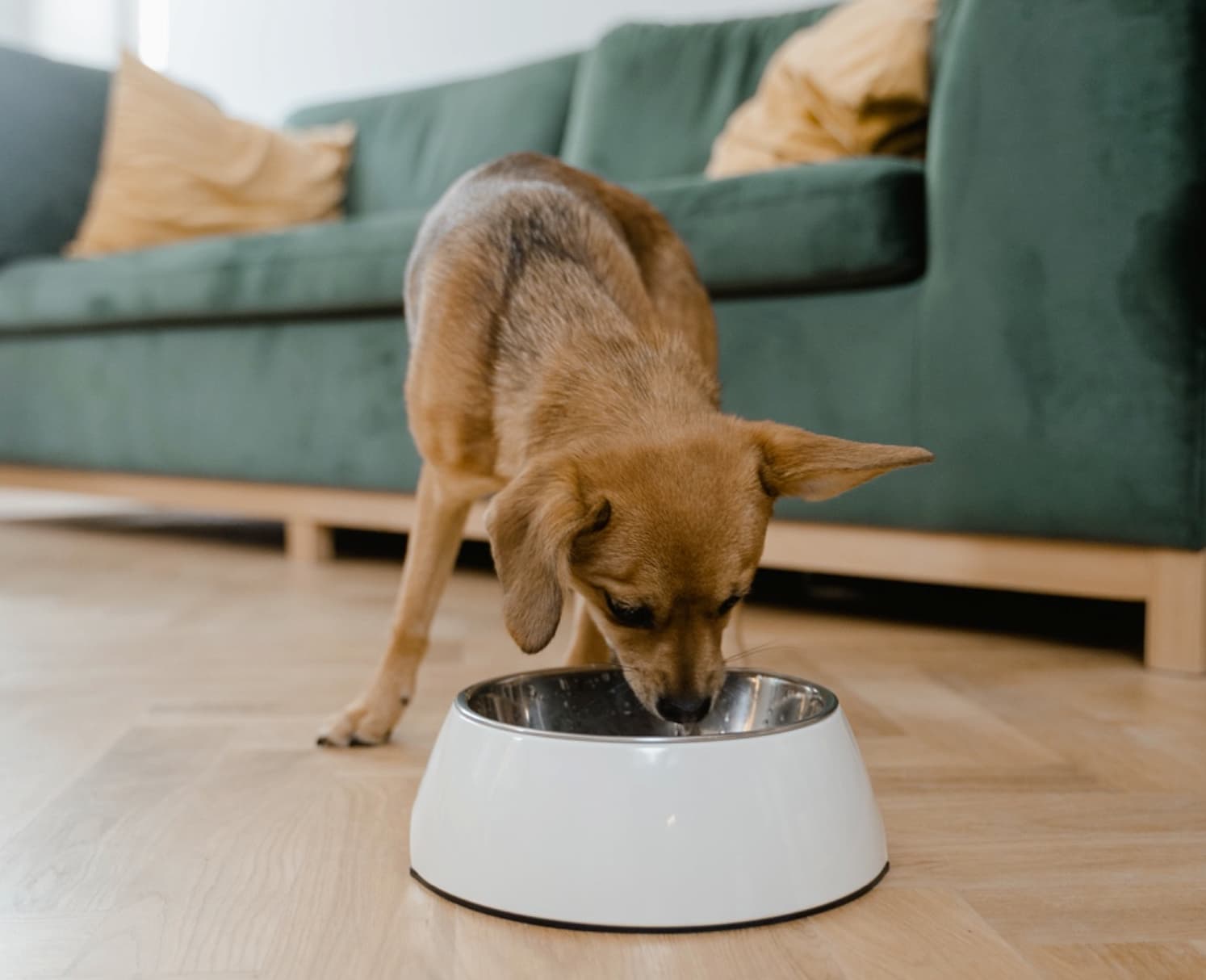As the holiday season approaches, it’s important to be mindful of potential gastrointestinal (GI) issues that can affect our beloved pets. According to the American Veterinary Medical Association (AVMA), upset stomachs rank as the third most common reason for veterinary visits. With tempting table food and increased stress levels during this time, it’s crucial to keep an eye out for any symptoms that might indicate GI distress in our furry friends.
What to look out for
If you notice any of these symptoms in your pet, give us a call at our phone number:
- Vomiting or diarrhea (may have blood or mucus)
- Weight loss
- Less appetite than usual or missing overall
- Fever
- Dehydration or not drinking water
- Abdominal pain or distension
What are some common causes?
Digestive issues in pets can have many different causes. Some of the most common causes are food-related, stress-related, and intestinal blockages.
Food-related digestive issues in pets often stem from their curious nature, leading them to consume things they shouldn’t, whether it’s table scraps or unexpected sidewalk snacks. Abrupt changes in your pet’s diet can also trigger digestive disturbances. To ease this transition, we recommend gradually introducing new food over one to two weeks, allowing your pet to adjust.
While food-related digestive issues are relatively common, ranging from mild to severe symptoms, there are steps you can take to promote your pet’s well-being. If you notice any concerning signs, don’t hesitate to give us a call. At , our team is here to provide the care your pet deserves.
Stress can also be a factor in your pet’s upset stomach. The holidays can be a time of increased stress for pets, as the festivities often disrupt their routine, whether they’re traveling with their families, staying in boarding facilities, or hosting visitors at home. All these things affect your pet’s daily routine, leading to heightened stress levels. Increased stress can take a toll on your pet’s appetite and eating habits, occasionally resulting in digestive issues.
Intestinal Blockages are another common GI issue that pets suffer from. These obstructions, also referred to as foreign bodies, prevent food from passing through the digestive tract. While some blockages may result from factors like hernias or cancerous masses, the majority stem from pets ingesting non-edible items. The array of inedible items that can lead to these blockages is diverse, ranging from small toy fragments and plush toy stuffing to sticks, small rocks, and even household items like socks or blankets.
If you know your pet likes to chew up toys, blankets, sticks, etc., restricted access and supervised playtime can significantly reduce the chances of your pet ingesting these items.
Intestinal blockages can be very serious and can quickly turn life-threatening. Symptoms may include severe vomiting, diarrhea, dehydration, and potential damage to the intestines. In the event of a blockage, prompt veterinary attention is essential. X-rays of your pet’s abdomen will be conducted, and the veterinarian will decide whether surgical intervention is necessary to safely remove the obstructing item.
How to know if it’s an Emergency Situation:
Because upset stomachs are common in pets, it can be hard to know what is or isn’t an emergency. We always recommend giving us a call if you have any concerns! Some signs that you may need to seek veterinary care are:
- Regardless of age, but especially if your pet is a young puppy or kitten, or an older senior, an upset stomach could be a sign of an underlying health problem and should be taken seriously if the issue persists.
- Your pet starts exhibiting lethargy, fever, dehydration, or abdominal pain
- Your pet is suffering from continuous vomiting or diarrhea
To ensure the well-being of our pets during the holiday season, it’s important to be proactive. Avoid giving them table scraps and keep them away from harmful substances. Minimize stress by providing a safe and quiet space for them to retreat to. If you notice any symptoms of GI issues, consult your veterinarian for proper guidance and treatment.
Remember, a little vigilance and care can go a long way in keeping our furry companions happy and healthy throughout the holiday festivities.

